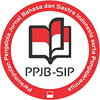The Violation of Politeness Maxims in Ridwan Kamil's Old Tweet about Jakarta
Sari
Politeness is one of the basics in creating effective communication in public spaces. One of the public spaces that is quite often used when communicating is social media, one of which is Twitter. People, including politicians, often express their opinions on certain issues through Twitter. Ridwan Kamil expressed his opinion about the characteristics of Jakarta residents long before entering politics. The tweet received many negative responses from netizens because it was considered impolite. This study aims to analyze the pragmatic features of the tweet by identifying violations of the principle of politeness and discussing its effectiveness on political discourse and digital communication. The data used are Ridwan Kamil's tweets in 2011, which mention in detail the characteristics of Jakarta residents, which were reposted by the @txtdrjkt account. Data analysis uses a discourse analysis approach guided by the theory presented by Leech (1991). The results of the analysis show that through a single tweet, Ridwan Kamil also violates the maxims of tact, generosity, approbation, modesty, agreement, and sympathy.
Teks Lengkap:
PDF (English)Referensi
Ababiel, S., Sabat, Y., & Rio, H. (2023). The politeness principle compliance used in Ridwan Kamil’s Twitter mourning tweets. PROJECT (Professional Journal of English Education), 6(5), 960–970.
Agustina, A. (2018). Politeness in language by the politicians in the discourse of Jakarta election. In Proceedings of the 1st International Conference on Language and Literature (ICLA 2017) (pp. 105–112). https://doi.org/10.2991/icla-17.2018.20
Brown, P., & Levinson, S. C. (1987). Politeness: Some universals in language usage. Cambridge University Press.
Chabibah, S. S. P. (2022). Violation of polite maxims on Twitter. In Proceedings of the 2nd International Conference of Humanities and Social Media (pp. 583–590).
Creswell, J. W. (2007). Qualitative inquiry and research design: Choosing among five approaches (2nd ed.). Sage Publications.
Eshreteh, M. K. M., & Badran, H. (2020). The application of Leech’s politeness maxims in Shakespeare’s The Merchant of Venice. Indonesian Journal of English Language Studies (IJELS), 6(2), 60–76. https://doi.org/10.24071/ijels.v6i2.1091
Herliana, M., & Tazkiyah, D. (2021). Kesantunan pragmatik Ridwan Kamil dalam sosialisasi vaksinasi COVID-19 di media sosial. SPHOTA: Jurnal Linguistik dan Sastra, 13(2), 31–42. https://doi.org/10.36733/sphota.v13i2.1496
Leech, G. N. (1991). Principles of pragmatics. Longman.
Lim, M. (2013). Many clicks but little sticks: Social media activism in Indonesia. Journal of Contemporary Asia, 43(4), 636–657. https://doi.org/10.1080/00472336.2013.769386
Santoso, T., Nurhayati, E., & Margana. (2025). Indonesian netizens’ impoliteness toward government loudspeaker policies: A cyberpragmatic approach. Journal of Language Teaching and Research, 16(2), 604–616. https://doi.org/10.17507/jltr.1602.27.
Yule, G. (2010). The study of language (4th ed.). Cambridge University Press.
DOI: https://doi.org/10.33387/tekstual.v23i1.9819
Refbacks
- Saat ini tidak ada refbacks.
Tekstual terindeks oleh:



